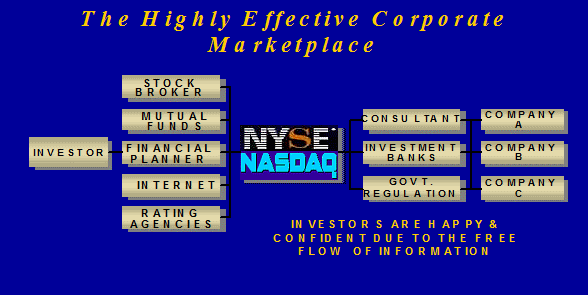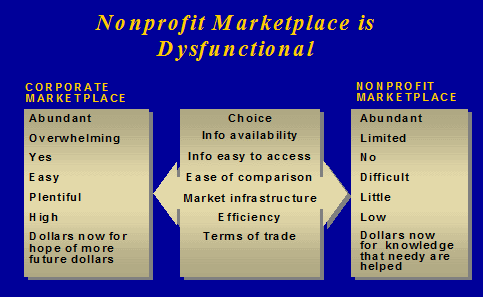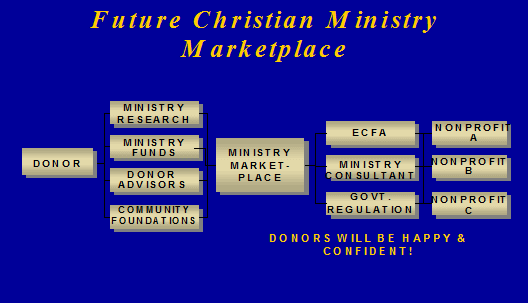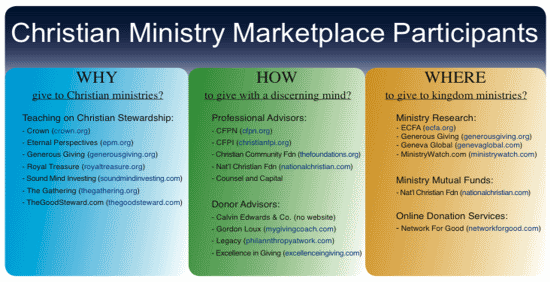|
[ How We View Ourselves | How We View Ministries ]
Are you looking to search for a Ministry?
The Purpose of Wall Watchers [ top ]Go to MinistryWatch.com, a type of consumer reporting website of faith-based charities, to search for a ministry. Wall Watchers is an independent donor advocate facilitating the information needs of donors. Wall Watchers seeks to provide the truth of stewardship for donors and then to help donors obtain accurate, detailed information about Christian ministries in the Christian Ministry Marketplace. Wall Watchers examines the practical epistemology of donor stewardship. Not stopping with the theory and origin of the "why" of stewardship (even though that is done too), but how to put it into practice with "where" and "who" (the practical application of putting a known truth into practice). Wall Watchers’ desire is to facilitate wisdom, understanding and discerning decision making for donors. This is done in part by providing information on organizations alleging to be charitable and its key leadership in order to identify materially misleading behavior, or wasteful spending practices, as well as identifying those operations that are above board and running efficiently. The objective is to limit consequences of scams and prevention of fraudulent activity, promote better allocations of giving, encourage intelligent questions of organizational structure, financial health, and advance the idea of organizational transparency and best practices. What Do We Mean By Calling Ourselves "Independent"? [ top ]Wall Watchers is independent in two ways. In the first instance, the organization's independence is based on the fact that it is not owned or controlled by any entity with a vested interest in any ministry or ministries. In the second instance, Wall Watchers is independent in the sense that it does not derive financial support from the ministries that it researches. What Kind of Entity is Wall Watchers? [ top ] Wall Watchers was founded in July 1998 as a North Carolina nonprofit corporation pursuant to section 55A-2-02 of the General Statutes of North Carolina (N.C.G.S.) It is also recognized by the Internal Revenue Service (IRS) as tax-exempt under Internal Revenue Code (IRC) section 501(c)(3) and as a Public Charity under IRC section 170(b)(1)(A)(vi). What Is Wall Watchers Motivation? [ top ] Wall Watchers is convinced that donors armed with credible analysis from a reliable, independent source will respond with larger and more frequent giving. Wall Watchers is driven by donor needs. By providing quality information services, Wall Watchers seeks to contribute to the enlightenment of the philanthropic community while empowering donors with charity-specific knowledge that will lead to increased giving and enhanced accountability. The Need For Ministry Research [ top ] A key ingredient to any well functioning marketplace is a free flow of information that is easily accessible, accurate, low cost, comprehensive and of high quality. Wherever goods or services are exchanged, there is a marketplace in operation. Those who are involved in an exchange make transactions based on some level of knowledge about the benefits of participating in the "trade." The greater the knowledge each participant in a transaction has regarding the potential benefit of making an exchange, the more likely a "trade" will take place. Additionally, the perceived value of having engaged in the trade will be higher for both parties involved. Some may argue that there is not a marketplace in the nonprofit world due to the absence of a profit motive. Despite this absence, there remains an exchange of donor dollars for the satisfaction of knowing that those in need have been cared for. With this gift comes a stewardship responsibility to both the giver and receiver to see that it has been administered appropriately and not wasted. Givers will not donate if they believe their gift will be wasted or misappropriated. Even though there is not a "bottom line" net profit measurement of success or failure in the nonprofit world, there are a variety of methods of gaining understanding about how efficiently and effectively donations are utilized. Donors will naturally utilize such measures to gain assurance that their giving was administered wisely. Accordingly, the marketplace transaction for nonprofits is simply the exchange of donor dollars for knowledge that the donation will likely achieve its desired goal of helping those in need. Some may be troubled by the notion that a marketplace indicates a competitive environment exists for Christian ministries. Several observers have expressed concern in the past that competition is inappropriate in a Christian ministry context. Wall Watchers believes that regardless of one's beliefs about such competitive forces, competition undeniably exists in the realm of Christian ministries. Ministries are clearly vying for donor dollars and regularly use standard business practices to attract as much money as possible to their ministries. Ministries with competitive advantages in terms of scale or distribution regularly exploit these for their own benefit while smaller, arguably more worthy ministries, are unable to match the efforts of the larger ministries. Wall Watchers seeks to help donors obtain accurate, unbiased information about all Christian ministries to help level the competitive playing field in the Christian Ministry Marketplace. If competition exists, it should at least be fair. It is also quite natural to at first be repulsed by the idea of a marketplace in the realm of giving. Giving is a very personal, and hopefully prayerful, activity. Talk of marketplaces and competition seem to be out of place in this area where the spiritual dimension should take precedence. Nothing in this article is meant to diminish the spiritual aspect of giving. Wall Watchers acknowledges that any marketplace or information service that seeks to aid the Christian donor is ultimately subservient to the Holy Spirit's leading - "Each man should give what he has decided in his heart to give, not reluctantly or under compulsion, for God loves a cheerful giver" (2 Corinthians 9:7). It is entirely possible that despite a large quantity of evidence that a donation should not be made to a particular ministry, a donor might feel lead by the Lord to give anyway. At the same time, however, we are confident that the Lord can and does use the tools that are available to donors in the Christian Ministry Marketplace to help align their gifts with His eternal purposes. By remaining faithful to the teaching of the Bible and sensitive to the Holy Spirit's promptings, donors can know if, how and when to best utilize the growing information available to donors about the ministries that they support. The Example of the Successful Financial Marketplace Because of the success of the world's capitalist-based economies, most people are familiar with stock exchanges such as the New York Stock Exchange or NASDAQ, perhaps the most effective marketplaces in the world. Here stock certificates representing ownership in public companies are exchanged between buyers and sellers based on each individual's expectations on the future value of the company in question. These stock marketplaces are very highly developed and benefit from the following entities and systems:

The Current Dysfunctional Christian Ministry Marketplace The Christian Ministry Marketplace is nowhere near as effective as that of the financial markets. The Christian Ministry Marketplace remains very underdeveloped and might best be described as dysfunctional:

While the Christian donor is much better served than the secular donor due to the industry leading efforts of the ECFA and Wall Watchers, there is much work yet to be done in order to achieve a comprehensive and fully functional Christian Ministry Marketplace. Moreover, it would be appropriate and commendable for the Christian community to continue to lead the way to greater accountability and effectiveness in the philanthropic world. The Potential of the Future Christian Ministry Marketplace What could the future Christian Ministry Marketplace look like? Here are a few ideas:
 All this is currently possible and, if implemented, would assuredly lead to more and wiser giving by donors and smarter spending by ministries. The net result would be potentially enormous financial blessings for the Lord's work. Accordingly, it is imperative that donors and ministries alike pursue the objective of a fully functioning Christian Ministry Marketplace with intentionality and vigor.
All this is currently possible and, if implemented, would assuredly lead to more and wiser giving by donors and smarter spending by ministries. The net result would be potentially enormous financial blessings for the Lord's work. Accordingly, it is imperative that donors and ministries alike pursue the objective of a fully functioning Christian Ministry Marketplace with intentionality and vigor.
Only a functioning Christian Ministry Marketplace will cause donations to be targeted to the most worthy ministries and motivate ministries to manage their operations as wisely as possible. Below is a chart that contains a partial listing of those organizations that already exist to help make giving a more rewarding experience for Christian donors. 
|
OUR PURPOSE: Philosophy | Principles | Mission | Statement of Faith | History & Vision | The Watchman | Donate OUR PROGRAMS | OUR PEOPLE | PUBLIC DOCS | FAQ | SITE INFO | CONTACT US | HOME � Copyright 1999-2011 Wall Watchers. All Rights Reserved. EMPLOYMENT OPPORTUNITES Please read our Terms & Conditions and Privacy Statement. Why not download the FLASH plugin and head on over to our FLASH website? |